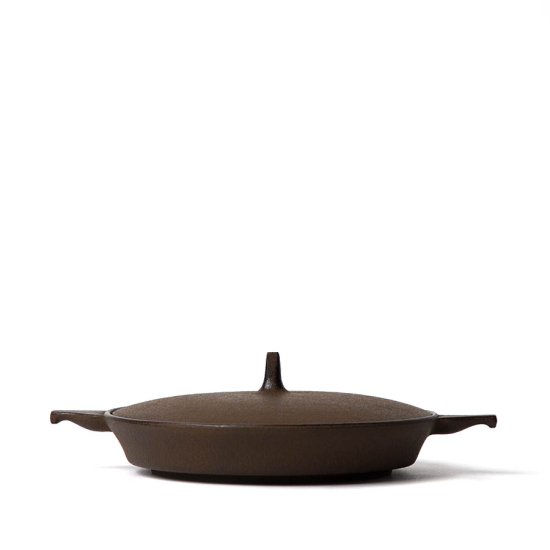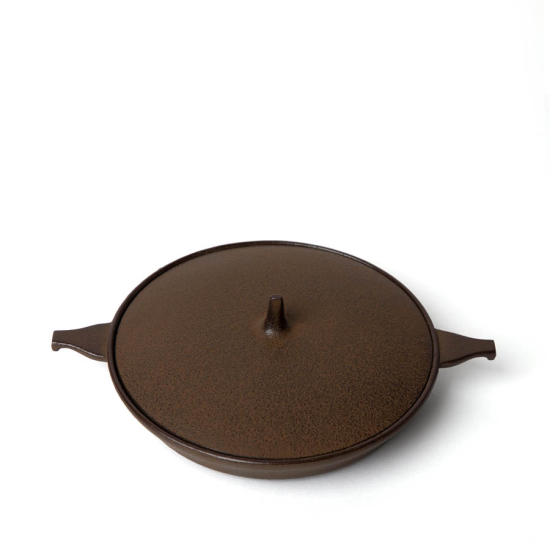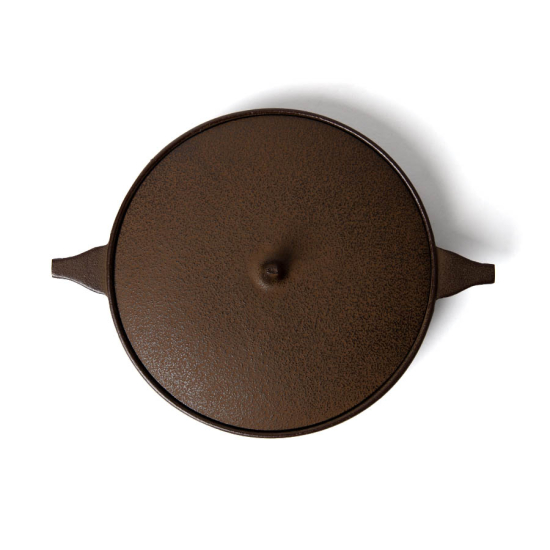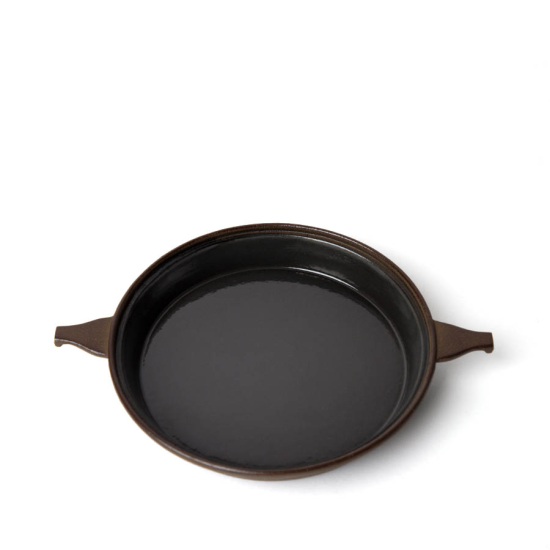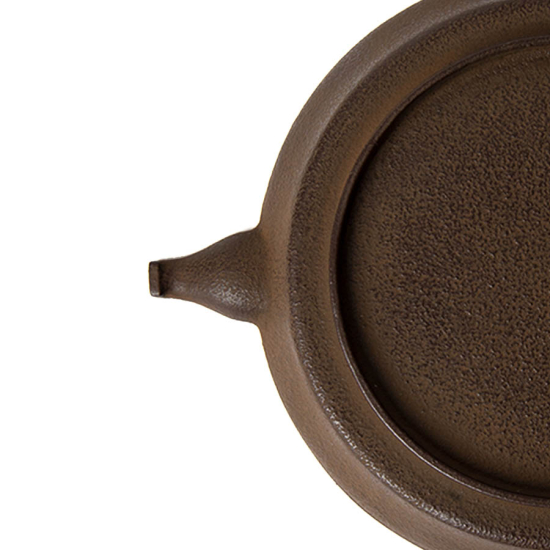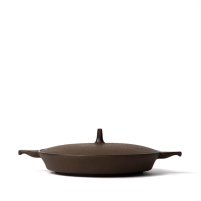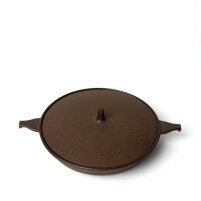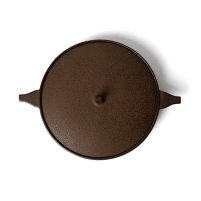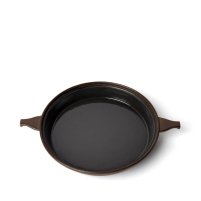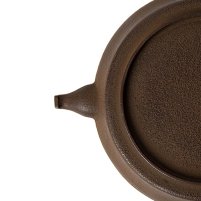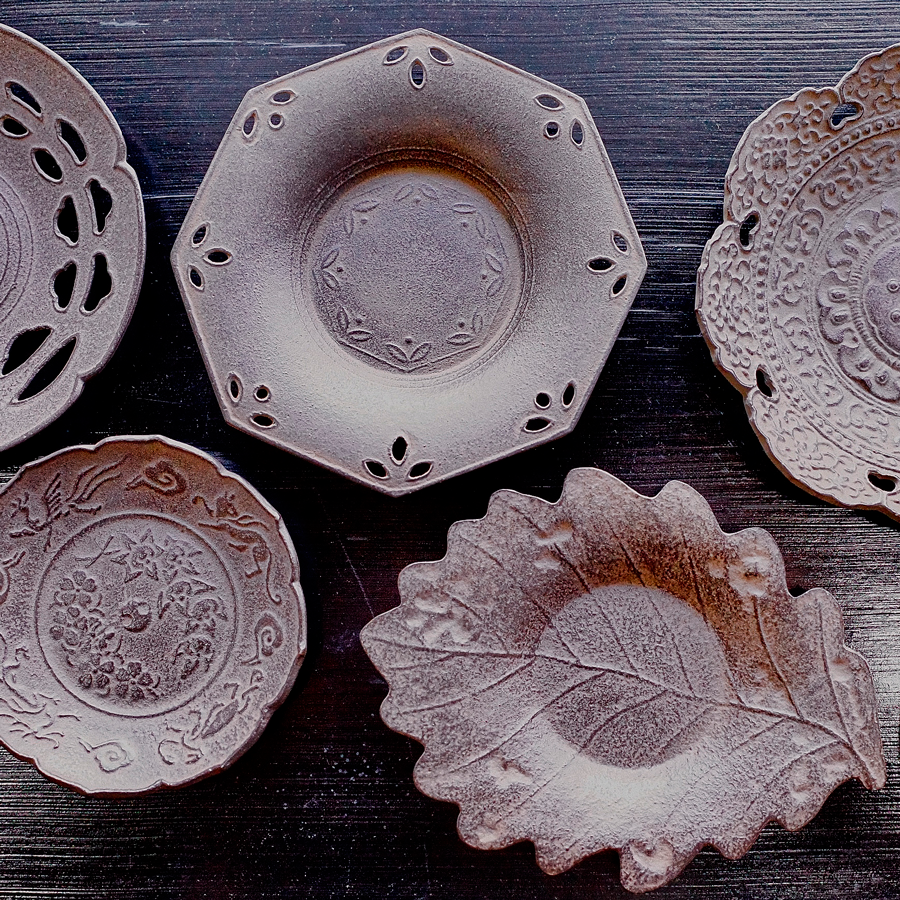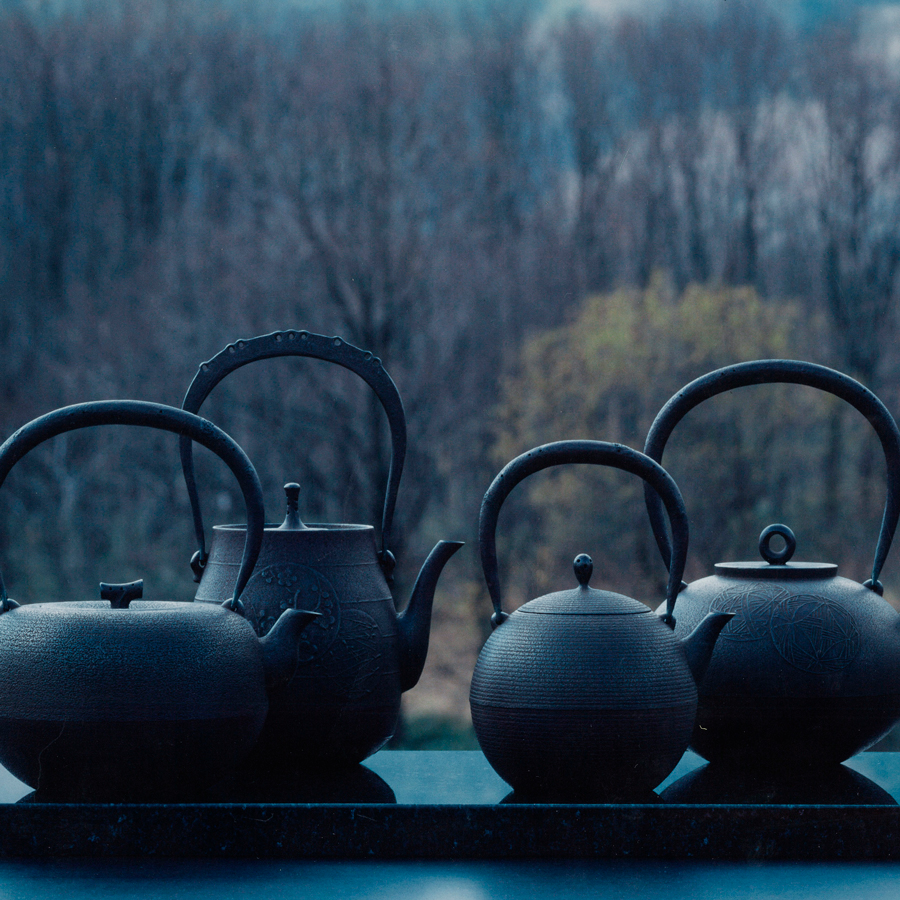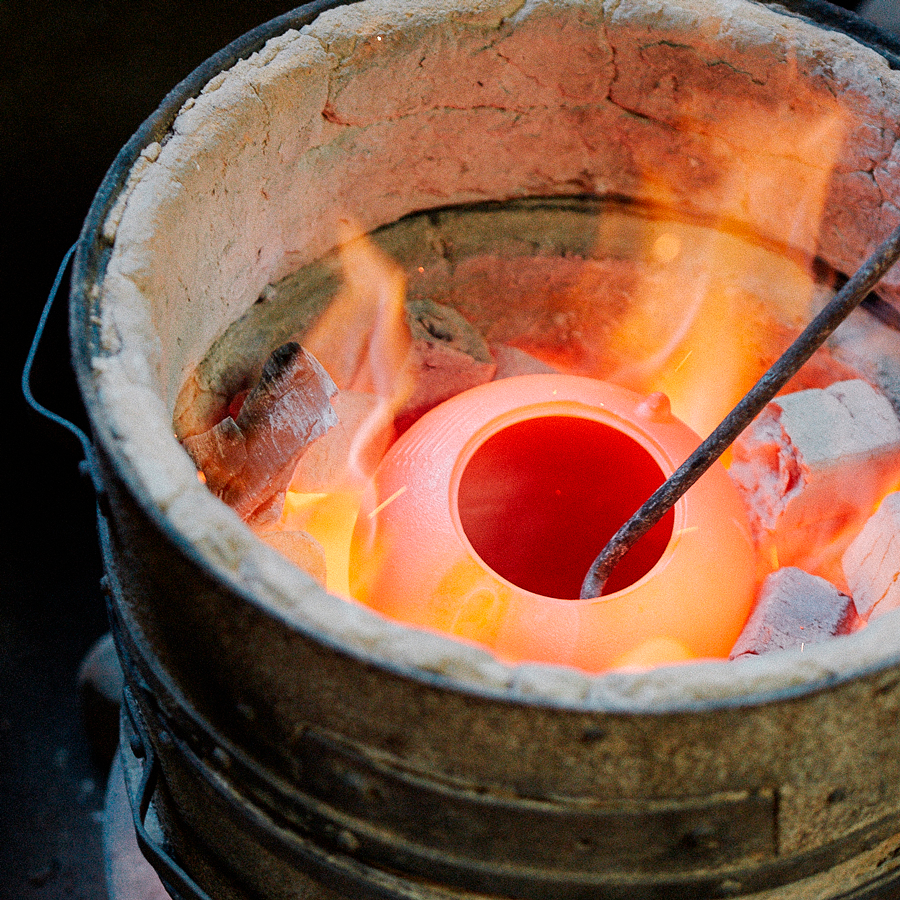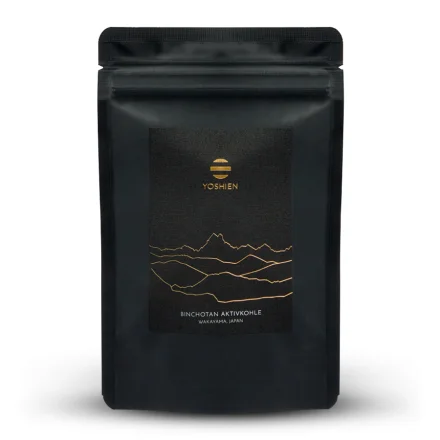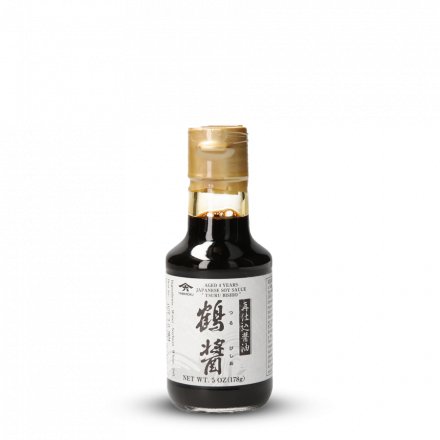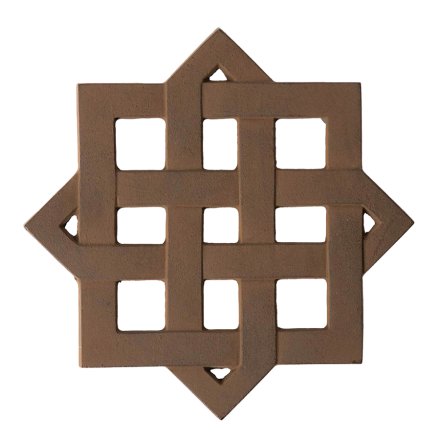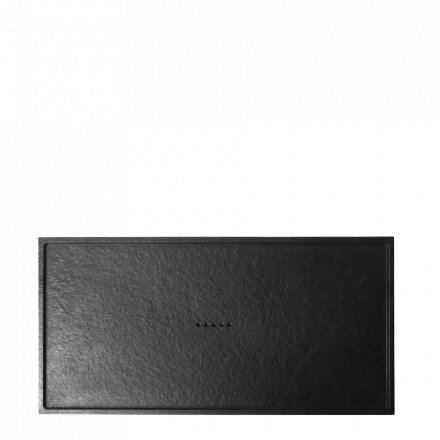If product becomes dirty, wipe with a dry cloth or handwash in hot water without using a sponge then press dry with a cloth – please note that colour may transfer. Avoid cleaning with cold water, salt or oil.
Japanese Cast Iron
Nanbu Tekki
Small Lidded Pan
Suzuki Morihisa
SKU
5677
Straight from the hob to the dining table, cook and serve in this stylish small, Japanese cast iron pan. Enamelled on the inside, this item is made by the historic Nanbu Tekki foundry, Suzuki Morihisa, in collaboration with the award-winning design studio SIMPLICITY founded by Shinichiro Ogata.
| Product | Nanbu Tekki pan with lid |
| Maker | Morioka, Iwate, Japan |
| Origin | Suzuki Morihisa x Simplicity |
| Dimensions | 14.5cm (L) x 19.5cm (W) x 6.5cm (H) |
| Weight | 0.8kg |
| Material | Cast iron, enamel |
| Packaging | Cardboard box |
Each item is handmade and therefore may vary slightly.
In stock



